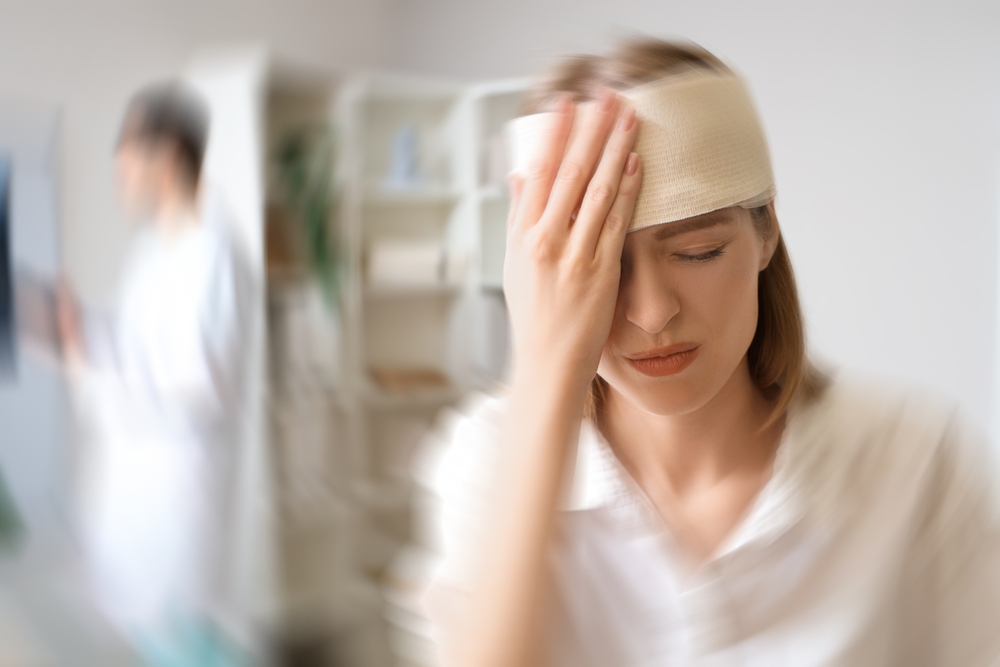Head Injury or Concussion? When to See a Neuro-Ophthalmologist

If you or someone you love has experienced a head injury, understanding the signs that indicate the need for a neuro-ophthalmic evaluation may help prevent long-term complications. At Quality Eye Care, our experienced neuro-ophthalmologist in Jacksonville, FL, provides advanced evaluation and treatment for vision problems caused by brain injury.
How Head Injuries Affect Vision
The visual system is complex - it involves the eyes, optic nerves, and multiple areas of the brain responsible for processing images. After a concussion or head trauma, any of these structures can be affected, leading to a variety of symptoms, including:
Common Vision Problems After a Concussion
- Blurred or double vision
- Difficulty focusing
- Light sensitivity
- Trouble reading or tracking words on a page
- Eye strain or fatigue
- Problems with balance or depth perception
- Visual motion sensitivity
- Headaches triggered by visual tasks
These symptoms may appear immediately after an injury or develop slowly over time. Many people assume they will simply “heal on their own,” but without proper evaluation, vision-related concussion symptoms can persist and impact school, work, driving, and daily activities.
When to See a Neuro-Ophthalmologist
A neuro-ophthalmologist specializes in how the eyes and brain work together. While a routine eye exam can detect many visual issues, neuro-ophthalmologists have additional training to diagnose and treat visual symptoms related to neurological conditions and injuries.
You should schedule an appointment with our neuro-ophthalmologist if you experience:
- Persistent Vision Changes Post-Injury: If blurred vision, double vision, or focusing difficulties last longer than a few days after a concussion, you may need a more comprehensive evaluation.
- Difficulty Reading or Tracking: Struggling to follow lines of text, losing your place while reading, or noticing that words seem to move can indicate a disruption in the brain’s eye-tracking system.
- Worsening Headaches Triggered by Visual Tasks: If screen time, reading, or bright lights worsen your headaches after a head injury, it may be due to visual-processing strain.
- Balance Issues or Dizziness: This can occur when visual and neurological systems are not communicating properly - something a neuro-ophthalmologist can help pinpoint.
- Visual Field Loss: Missing spots in your peripheral vision is a red flag that should be evaluated promptly.
What to Expect During a Neuro-Ophthalmic Evaluation
A neuro-ophthalmic exam goes beyond a standard eye exam by taking a deeper look at how your eyes and brain work together. At Quality Eye Care, your visit may include detailed vision testing, eye-movement and tracking assessments, visual field testing, evaluation of the optic nerve and retina, neurological screening, and a thorough discussion of your concussion history and symptoms. This comprehensive approach helps us pinpoint the source of your visual concerns and develop a targeted treatment plan.
Schedule Your Neuro-Ophthalmology Evaluation Today
Head injuries and concussions can create lasting issues for both the brain and visual system. If you’re experiencing persistent visual changes, headaches, dizziness, or difficulty reading after a head injury, a visit with our neuro-ophthalmologist can provide clarity and relief.
If you’ve had a concussion or head injury and are noticing changes in your vision, don’t wait. Quality Eye Care provides advanced neuro-ophthalmic care to help you recover comfortably and confidently. Contact our office in Jacksonville, Florida, by calling (904) 601-1300 today.







